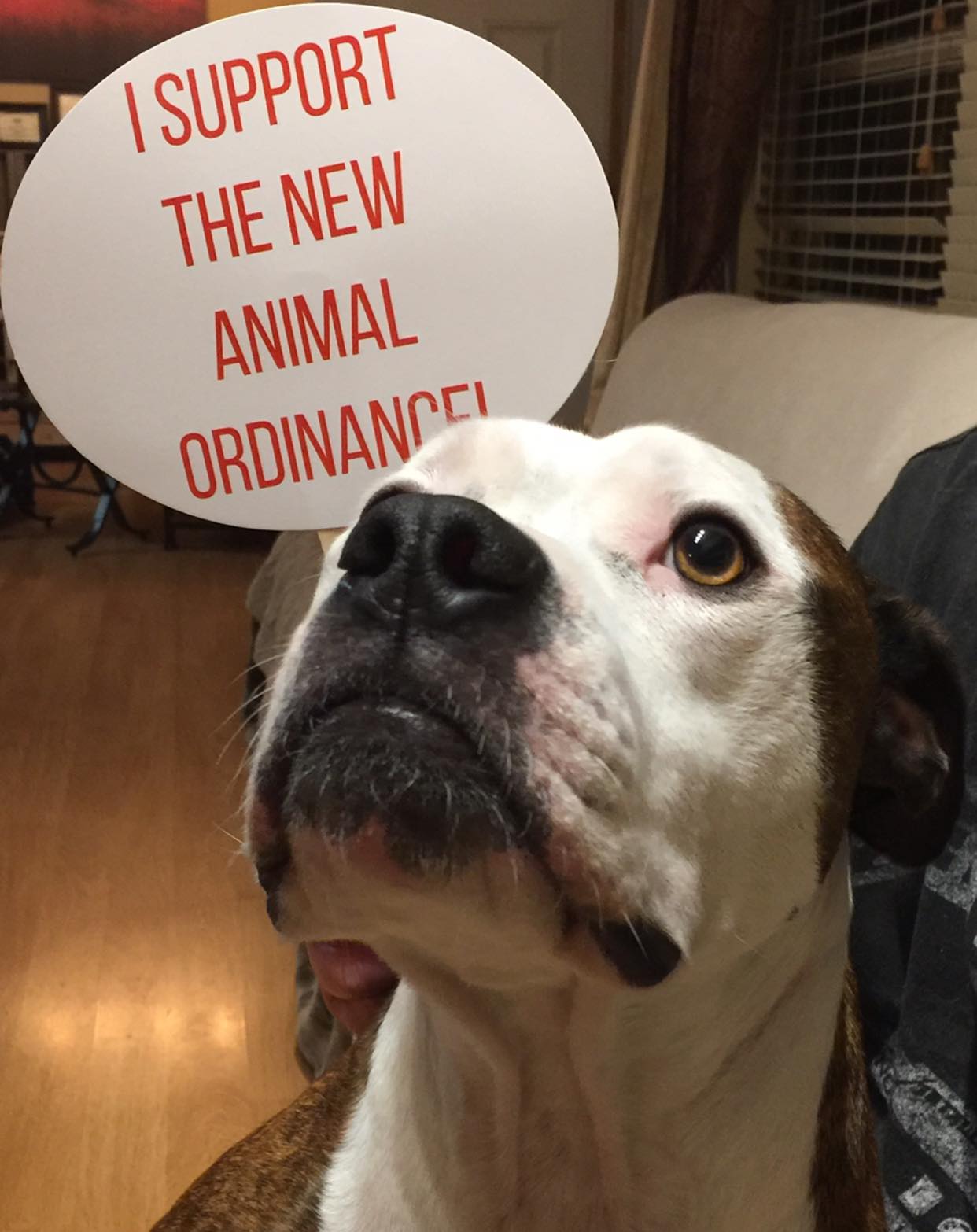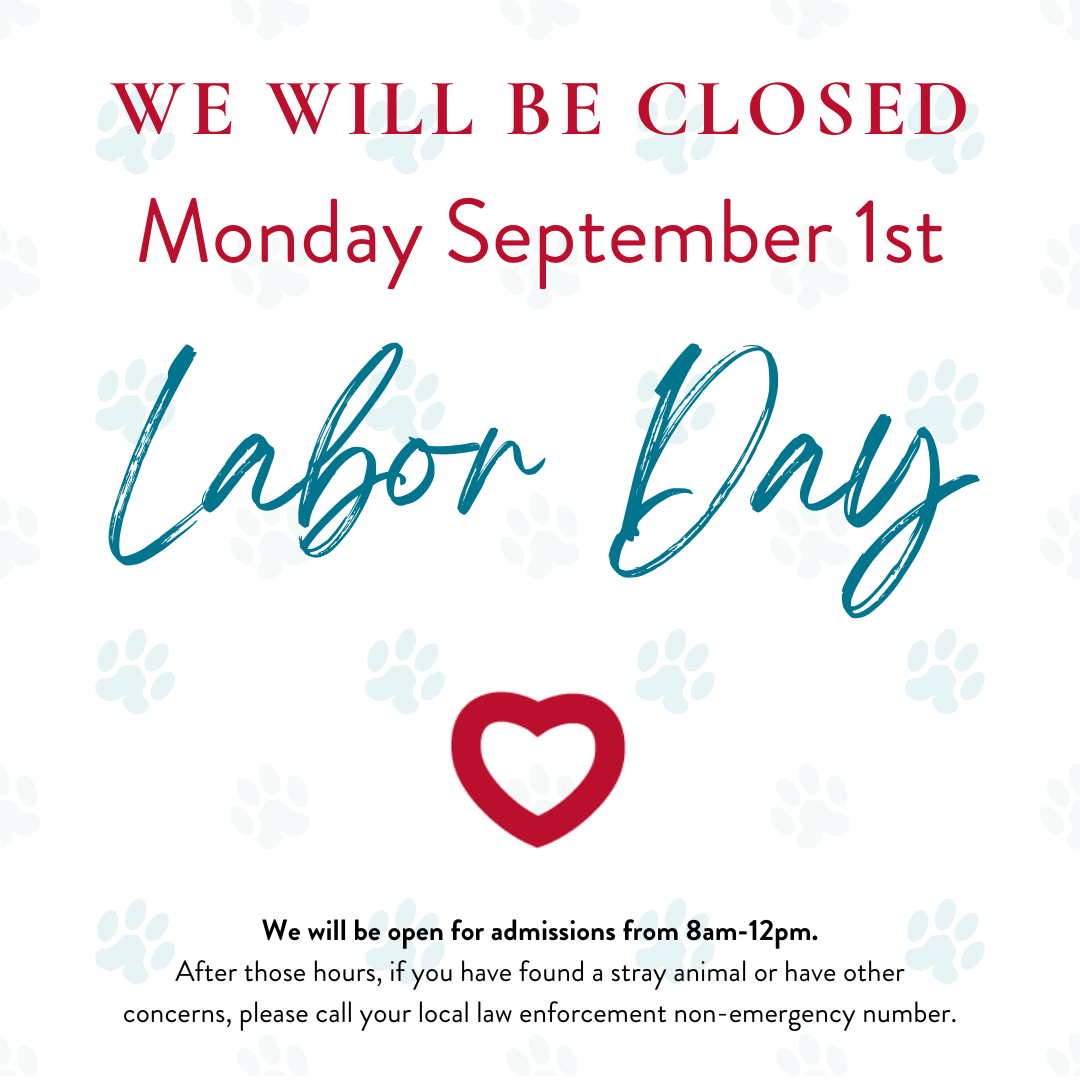Hamilton County Animal Ordinance
It's The Law
The Humane Society for Hamilton has taken the lead in collaboration with the Hamilton County Sheriff’s Department to develop a best practice, animal ordinance. In 2019, the Hamilton County Commissioners voted to pass the new ordinance that now defines adequate shelter (including times of inclimate weather) and adequate care. Both animal neglect and cruelty are clearly defined along with increased fines and penalties (up to and including jail time, counseling, and future forfeiture of pet ownership in Hamilton County) depending on the crime or ordinance infraction. Precedent setting language also addresses the ban on “backyard breeding” and puppy mills at an ordinance level.
As of August 2021, the new ordinance has also been adopted by every city in Hamilton County as well as Sheridan and Cicero!

New Ordinance Overview
Download a summary of the updates made to the Hamilton County Animal Ordinance along with frequently asked questions.
Frequently Asked Questions
YES. In 2008, Hamilton County enacted a No Fee Breeders Permit to enforce the mandatory spay and neuter of domestic pets. Under the ordinance provisions, dogs or cats must be spayed by six months of age unless the owner has a written letter from a licensed veterinarian stating it’s not in the animal’s best medical interest to be sterilized. If a dog or cat is older than nine months and has not been spayed or neutered for any reason, a no fee breeder’s permit is required.
YES. No Fee/Free Breeder’s Permits work in tandem with the enactment of a Mandatory Spay/Neuter Ordinance in any community. Each dog and cat over the age of six (6) months which is kept in the county shall be sterilized and rendered incapable of reproducing by a licensed veterinarian, with the following exceptions as long as the requirements noted herein are met:
- A free breeder’ s permit has been secured
- Current pets are receiving adequate care, shelter, and veterinary care as defined in the ordinance
- The animal is considered a competition cat or dog
- The animal’ s health or a special medical condition puts them at risk for complications due to surgery according to an authorized veterinarian
- Owner is considered an Approved Breeder as defined in the ordinance
- Owner has not surrendered an animal brought to the Humane Society for Hamilton County or allowed an animal to run at large
- Additionally, anyone operating as an “approved breeder” must also obtain a permit on an annual basis.
- The Hamilton County Sheriff’s Department reserves the right to deny any applicant who does not meet the requirements noted within the Hamilton County Title 15 Animal
Permits may be obtained from the Hamilton County Sheriff’s Department at Breeder’s Permit.
NO. There are no animal licensing requirements in Hamilton County, Indiana. However – with the revised ordinance, dogs and cats are required to have permanent identification on them at all times. This can be in the form of a tag on the collar or a microchip, both of which must bear current contact information for the owners.
YES. With the revised ordinance, owners will be required to keep their animals on a leash when not on their own property or on a property for which they have permission to have an animal off leash. This does not include hunting dogs engaged in legal hunting activities with permission from the landowner.
While it is not illegal to leave an animal inside a vehicle, it is a violation of the Hamilton County ordinance to leave your pet in a vehicle when the temperatures / conditions in said vehicle become detrimental to the health of the animal (extreme heat or cold).
If you see an animal in a vehicle and have a concern for its safety, please call police dispatch immediately.
Even if a county does not have a specific ordinance regarding animals left in vehicles, Indiana State Law addresses this under Indiana Code: 35-46-3-7 Animal Neglect.
By state statute definition neglect is defined below with section (C) covering animals in vehicles. (Definitions: 35-46-3-0.5):
“Neglect” means:
(A) Endangering an animal’s health by failing to provide or arrange to provide the animal with food or drink, if the animal is dependent upon the person for the provision of food or drink;
(B) restraining an animal for more than a brief period in a manner that endangers the animal’s life or health by the use of a rope, chain, or tether that:
(i) is less than three (3) times the length of the animal;
(ii) is too heavy to permit the animal to move freely; or
(iii) causes the animal to choke;
(C) restraining an animal in a manner that seriously endangers the animal’s life or health;
(D) failing to:
(i) provide reasonable care for; or
(ii) seek veterinary care for;
an injury or illness to a dog or cat that seriously endangers the life or health of the dog or cat; or
(E) leaving a dog or cat outside and exposed to:
(i) excessive heat without providing the animal with a means of shade from the heat; or
(ii) excessive cold if the animal is not provided with straw or another means of protection from the cold; regardless of whether the animal is restrained or kept in a kennel.
So no matter where you are in the Hoosier state, if you see an animal in a vehicle and have a concern for its safety, please call police dispatch immediately.
In 2017, Indiana passed the Good Samaritan Law that allows a citizen to forcibly enter a motor vehicle under certain conditions to rescue a companion animal confined inside. Under Indiana’s law, a person who breaks into a vehicle to remove an animal in distress is required to pay for half of the repair costs directly caused by the forcible entry. The only exception to having to pay for half of the damage would be if the owner of the vehicle agrees to pay for all of the repair costs or if the “Good Samaritan” is acting in the scope of their employment as a law enforcement officer, firefighter, government officer or public safety employee, emergency responder, animal control officer, or veterinary professional. Besides the cost-of-repairs provision, the law grants immunity from all other civil and criminal liability provided the person:
(1) reasonably believes that the domestic animal is in imminent danger of suffering serious bodily harm;
(2) determines that the motor vehicle is locked and forcible entry of the motor vehicle is necessary to remove the domestic animal;
(3) calls 911 or otherwise attempts to contact a law enforcement officer or another emergency responder before forcibly entering the motor vehicle;
(4) uses no more force than reasonably necessary; and
(5) remains with the domestic animal until a law enforcement officer or other emergency responder arrives.
The Hamilton County Ordinance states that “no animal shall be transported on public property in any non-passenger compartment of a vehicle unless confined in a kennel that is secured to the vehicle in a manner intended to prevent the kennel and animal from being thrown from the vehicle in an accident or rapid stop or other use of the vehicle which could cause injury to the pet. No animal shall be transported in the trunk of any vehicle. A person violating this section of Chapter 1 may be fined up to $500.00 per occurrence.”
The Hamilton County Ordinance states that:
When the temperature is:
- At or below 40°F animals must have access to adequate shelter, food, water, and space, including adequate, dry bedding material or other means of protection from the weather that will allow the animal to retain body heat when the weather is colder than what an animal of that breed and condition can comfortably tolerate, or, they must have continued and uninterrupted access to a climate controlled
- At or above 80°F animals must have access to adequate shelter, food, water, and space, including adequate shade during daylight hours—provided by trees, a tarp or other means that prevents overheating or discomfort to the animal, or, they must have continued and uninterrupted access to a climate controlled
- In extreme weather conditions and temperatures, including a heat advisory, wind chill warning, or tornado warning that has been issued by local, state, or national authority, animals must be monitored by a competent person and have access to adequate shelter, food, water, and space, including adequate bedding and/or shade as described in this section, or, continued and uninterrupted access to a climate controlled
Obtain a Breeders Permit
Breeder’s Permits are obtained through the Hamilton County Sheriff’s Department. Please note that livestock (e.g., horses, cows, pigs, sheep, and goats) are governed by local zoning laws. Consult your local zoning office for requirements.



